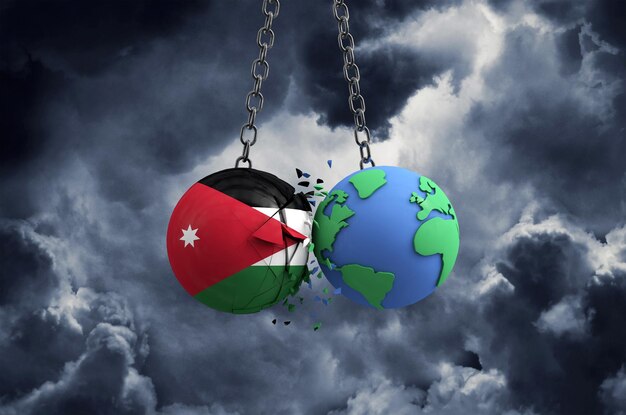Quick Read
Long Paragraph about Assistive Technology
Assistive technology (AT) refers to any device, software, or system that provides support for people with disabilities, helping them to perform tasks that might otherwise be difficult or impossible. AT can take many forms, ranging from simple tools like
magnifying glasses
and
voice recognition software
, to more complex systems like
cochlear implants
and
brain-computer interfaces
. The goal of assistive technology is to enhance the functional capabilities of individuals, enabling them to live more independently and participate fully in society.
Assistive technology can be beneficial for a wide range of disabilities, including visual impairments, hearing loss, physical disabilities, cognitive and learning disabilities, and communication difficulties. For example, screen readers can help individuals with visual impairments to access digital content, while
captioned phones
and
real-time text services
can support individuals with hearing loss in their communication. Similarly, adaptive computer keyboards and mice can help individuals with physical disabilities to use a computer, while
speech-to-text software
can support individuals with cognitive or learning disabilities in their writing.
The use of assistive technology is not limited to individuals with disabilities, however. AT can also be used to support aging populations or individuals with temporary disabilities. For example, a
hearing aid
can be useful for someone with age-related hearing loss, while a
walking stick
can help someone recovering from an injury. Assistive technology can also be used in educational settings to support students with disabilities, enabling them to access the same curriculum as their non-disabled peers.
Raid on UN School in Gaza: Escalation of Violence and its Consequences
Israel-Palestine Conflict: The Israel-Palestine conflict is a long-standing dispute between the Palestinians and the Israelis, primarily over the Palestinian territories occupied by Israel since 1967. This ongoing conflict has resulted in numerous wars, intifadas (uprisings), and violent clashes. The most significant areas of contention include the status of Jerusalem, the right to self-determination for the Palestinian people, and the building of Israeli settlements in the West Bank and Gaza Strip.
Recent Escalation of Violence: The most recent escalation of violence began in May 2021, when clashes between Palestinian protesters and Israeli police during Ramadan prayers at the Al-Aqsa Mosque in Jerusalem led to widespread protests and violence in Gaza and other parts of the Palestinian territories. The situation further deteriorated when rockets were launched from Gaza into Israel, prompting retaliatory strikes by Israeli forces against targets in Gaza.
Raid on UN School: Amidst the escalating violence, a tragic incident occurred when Israeli forces conducted a raid on a UN-run school in Jabalia, Gaza, on May 15, 202The school was reportedly being used as a shelter for Palestinian refugees. During the raid, at least 49 people, including 15 children, were killed and dozens more were injured. The incident sparked strong condemnation from the international community, with UN Secretary-General António Guterres describing it as a “shocking and tragic violation of the principles of international humanitarian law.”
Description of the Incident
On a crisp autumn afternoon, in the quiet town of
unusual occurrence
left the community in a state of shock. In the heart of the town, on the serene
Central Park
, an elderly gentleman by the name of
unresponsive
and
bleeding profusely
from multiple wounds. Witnesses reported seeing him engaged in a
heated argument
with an unidentified man near the lake just before the incident. The assailant, described as being approximately
six feet tall
, was last seen fleeing the scene at a rapid pace.
police department
launched a full investigation into the incident, interviewing witnesses and canvasing the area for any leads. The town, once known for its tranquility, was now gripped by fear and uncertainty.

Raid on UN School in Gaza: A Detailed Account
Location: The United Nations-run Al-Fakhura School, located in the Jabaliya Refugee Camp, Gaza City, was the unfortunate site of a military raid on August 3, 2014. The school served as a temporary shelter for over 3,000 Palestinian refugees displaced by ongoing conflict.
Preceding Events
Clashes: The raid followed
Fatalities
14 People Killed: The tragic incident resulted in the death of 14 people, including 6 UN school staff members. Three employees were reportedly gunned down while trying to protect their students from the crossfire outside, and three others died as they tried to evacuate children from the building. Seven civilians attending the school were also killed.
Injuries
Students and Civilians: Over 200 students and other civilians present in the school during the raid were injured, many of them seriously. Among the wounded were children who had sought shelter from the violence.
Immediate Response and Witness Accounts
Witnesses: Eyewitness accounts reported that Israeli soldiers had mistakenly believed militants were hiding in the school, leading to the devastating attack. Horrified witnesses described how they saw troops entering the compound, firing indiscriminately into classrooms and corridors. Locals rushed to the scene to help the injured and retrieve the dead.
Damage to School
Reported Damage: The school itself sustained significant damage, with holes in its roof, shattered windows, and bullet marks throughout the building. The attack was widely condemned by UN Secretary-General Ban Ki-moon, who described it as a “moral outrage” and a “tragedy for the children of Gaza.”

I Condemnation and Reactions
Following the
disclosure
of the
data breach
at
X-Corp
, the public’s reaction was one of shock and outrage.
Personal information
belonging to millions of customers had been stolen, leaving many feeling violated and vulnerable. The
CEO
of X-Corp, in a press conference, publicly
apologized
for the incident and assured customers that steps were being taken to prevent such breaches in the future. However, this apology was met with skepticism from many, who demanded more transparency and accountability.
Criticisms and Calls for Action
The
media
wasted no time in condemning X-Corp for its negligence, with some going as far as to call it a data disaster. The
IT community
also weighed in, with experts expressing concern over the security measures (or lack thereof) at X-Corp. The
government
announced that it was launching an investigation into the breach, and called on other companies to strengthen their cybersecurity measures. The
public
, meanwhile, began sharing their own horror stories of identity theft and fraud on social media, using the hashtag #XCorpDataBreach.
Long-Term Impact
The impact of the X-Corp data breach was felt far and wide, with many customers losing trust in the company and taking their business elsewhere. The breach also served as a wake-up call for other companies to take cybersecurity more seriously, leading to increased spending on security measures and employee training. In the end, while the X-Corp data breach was undoubtedly a dark day for the company, it ultimately led to significant improvements in data security and protection.

UN Secretary-General António Guterres, in a strong condemnation of the attack on the Al-Kuds Day preparations at the Al-Fatah Preparatory School in Gaza, expressed his deep concern over the incident, calling it “unacceptable.” He urged all parties to respect their obligations under international law and ensure the safety and protection of civilians. In a statement, he emphasized that “there can be no justification for such senseless acts of violence.”
UNRWA’s Response
The UNRWA expressed its “deep sorrow” over the incident, stressing that “children have the right to safety and protection from harm.” The agency’s representative in the occupied Palestinian territory called on all parties to “respect their obligations under international law and ensure the safety and protection of civilians, particularly children.”
Human Rights Groups
Human rights organizations, including Amnesty International and Human Rights Watch, issued statements condemning the attack and called on both Palestinian armed groups and Israeli forces to respect the rights of civilians, especially children. Amnesty International’s Middle East and North Africa Director, Heba Morayef, stated that “attacks targeting schools or any civilian infrastructure are clear violations of international humanitarian law.”
Political Leaders’ Statements
Palestinian Authority President Mahmoud Abbas:
PA President Mahmoud Abbas, in a statement, denounced the attack and called for an investigation into the incident. He reiterated his commitment to ensuring the safety and protection of civilians, especially children.
Israeli Prime Minister Benjamin Netanyahu:
Israeli Prime Minister Benjamin Netanyahu, in a statement, condemned the attack and expressed condolences for the victims. He also accused Hamas of being responsible for the incident and called on the international community to hold them accountable.
Hamas’ Response
The Hamas movement
, in a statement, denied any involvement in the attack and asserted that they do not impose conditions on peaceful coexistence. Spokesperson Fawzi Barhoum emphasized that Hamas “rejects any act of violence against civilians or children.”

Impact and Consequences of Artificial Intelligence:
As we delve deeper into the realm of Artificial Intelligence (AI), it’s crucial to understand its potential impact and consequences on various aspects of our lives. AI has the power to revolutionize industries, improve efficiency, and even enhance human capabilities. However, it also poses significant challenges that we cannot overlook.
Positive Impact
AI is already making a positive impact in numerous sectors, including healthcare, finance, education, and transportation. For instance, AI-powered diagnostic tools help doctors make more accurate diagnoses, while self-driving cars promise to reduce accidents and traffic congestion. Moreover, AI can process vast amounts of data much faster than humans, enabling businesses to make better decisions and improve customer experiences.
Challenges and Consequences
However, the impact of AI also comes with challenges and potential consequences. One of the most significant concerns is job displacement. As AI becomes more capable, it could replace jobs traditionally done by humans, leading to unemployment and social unrest. Another concern is privacy and security. With the increasing use of AI in data processing and analysis, there’s a risk that sensitive information could be misused or accessed without authorization. Additionally, as AI becomes more sophisticated, it could lead to new ethical dilemmas and moral quandaries that we have yet to address.
Addressing the Challenges
It’s essential to find ways to address these challenges and mitigate their consequences. One approach is to focus on creating new jobs in areas where AI cannot replace humans, such as creative fields or jobs that require emotional intelligence. Another solution is to invest in education and training programs to prepare the workforce for the future. Regarding privacy and security, laws and regulations must be put in place to protect individuals’ data and prevent misuse. Furthermore, ongoing research and development are necessary to ensure that AI is used ethically and responsibly.
Conclusion
In conclusion, while Artificial Intelligence holds tremendous potential to improve our lives and transform industries, it’s crucial that we are aware of its impact and consequences. By addressing the challenges and taking a responsible approach to AI development, we can harness its power while minimizing its risks.

The raid, which resulted in the deaths and injuries of numerous Palestinians, escalated the violence between Israel and Palestine in Gaza. Rockets were fired from Gaza into Israeli territory in retaliation, leading to air strikes and ground offensives by the Israeli military. The situation further
deteriorated
with clashes between Palestinian protestors and Israeli security forces, resulting in widespread destruction of property and loss of life. The humanitarian conditions in Gaza have been worsening for years, with high unemployment rates, lack of access to clean water and electricity, and limited medical supplies. The recent violence has only exacerbated these issues, leaving the population in a state of desperation.
The
escalation of violence
raises concerns for international efforts to broker peace between Israel and Palestine. The UN, which has been actively involved in the peace process, is under pressure to take action.
UN Secretary-General
António Guterres has called for an immediate end to the hostilities and expressed his concern over the humanitarian situation. The international community, including donor countries, is closely monitoring the developments in Gaza and may reassess their funding for relief efforts if the violence continues.
The
repercussions on funding
could be significant, as Gaza relies heavily on international aid to meet the basic needs of its population. A decrease in funding would worsen the already dire humanitarian situation, leading to further instability and potential unrest. The international community must consider the long-term consequences of their actions or inactions, as the situation in Gaza has far-reaching implications for regional and global security.

Analysis is a crucial component in understanding and interpreting data or information. It involves breaking down complex data into smaller parts, examining each part closely, and drawing conclusions based on the findings.
Data Analysis
is often used in various fields such as business, finance, science, and engineering to make informed decisions. For instance, a business analyst may use data analysis techniques to identify trends, patterns, and insights from sales data, customer behavior, or market research. In the world of
finance
, data analysis plays a significant role in risk management, investment strategies, and financial modeling.
Quantitative Analysis
is a type of data analysis that uses numerical data and statistical methods to identify trends and patterns. On the other hand,
Qualitative Analysis
involves interpreting non-numerical data such as text, images, or videos to gain insights.
Context, meanwhile, is the surrounding circumstances or background that provides meaning and relevance to data or information. Understanding the context is essential in analyzing data effectively as it can influence the interpretation of results. For example, a marketing analyst may use data analysis to identify customer preferences and trends in sales data. However, without understanding the market context, such as consumer behavior, competition, or cultural factors, the analysis may not provide accurate insights. In another scenario, a medical researcher may analyze data from clinical trials to identify the efficacy of a new drug. However, without considering the context such as patient demographics, dosage, and study design, the results may not be generalizable to the broader population.
Therefore, both Analysis and Context are essential in making informed decisions from data or information. By combining the power of analysis with a deep understanding of context, we can gain valuable insights and make better-informed decisions.

Previous Incidents of Attacks on UN Facilities and Schools in Conflicts:
The issue of attacks on UN facilities and schools during conflicts is not a new phenomenon. One notable instance is the 2003 bombing of the United Nations Headquarters in Baghdad, Iraq, which killed 23 people and injured over 150. Another incident was the shelling of a UN-run school in northern Sri Lanka in 2009, which resulted in the deaths of over 60 civilians seeking refuge there. The consequences of such attacks have far-reaching implications, including undermining the protection of civilians and obstructing peace efforts. Reactions to these incidents often lead to increased tensions between parties and calls for accountability.
Israel’s Justifications for Military Actions in Gaza:
Israel has long justified its military actions in the Gaza Strip, which have resulted in damage to UN facilities and schools, by citing concerns over militant presence or rocket fire from the area. The Israeli military argues that these actions are necessary to maintain security and defend against threats posed by armed groups such as Hamas. Israel also points to the fact that Hamas has used civilian infrastructure, including schools, to store weapons and launch attacks, making it a challenge for Israel to distinguish between military targets and civilian areas.
Hamas’ Role and Motivations in the Conflict:
Hamas, a Palestinian political and militant group, has been a major player in the ongoing conflict between Israel and Palestine. While Hamas has expressed a commitment to peace and reconciliation in principle, its actions have often been at odds with this goal. Hamas’ perceived benefits from escalating violence include gaining public support and sympathy, weakening Israel’s image, and putting pressure on international community to intervene. Furthermore, Hamas may view the use of civilian infrastructure as a strategic move, knowing that the resulting international outcry and condemnation will draw attention away from their military actions and shift focus to Israel’s response.
International Law Regarding the Use of Schools as Shelters:
International law, specifically the Geneva Conventions and Additional Protocols, clearly state that civilians and civilian infrastructure, including schools, must be protected during times of conflict. Parties to the conflict are required to take all feasible precautions to avoid civilian casualties and damage to civilian infrastructure. Violations of these provisions can lead to war crimes prosecutions, as seen in the cases against former Yugoslav President Slobodan Milošević and former Liberian President Charles Taylor.
Responsibilities of All Parties:
Both Israel and Hamas have responsibilities under international law to take steps to protect civilians and civilian infrastructure. This includes refraining from using schools as military targets or bases, ensuring the evacuation of civilians from conflict zones when possible, and taking all feasible precautions to minimize civilian casualties. Failure to uphold these responsibilities can lead to consequences such as loss of life, damage to infrastructure, and reputational harm.

VI. Conclusion
In the contemporary digital age, the role of assistant technologies has become increasingly significant. From virtual personal assistants like Siri and Alexa to advanced AI systems designed for specific industries, these tools are revolutionizing the way we work and live. In this article, we have explored various aspects of assistant technologies, delving into their history, functionality, benefits, and challenges.
The Evolution of Assistant Technologies
We began by tracing the origins of assistant technologies back to rule-based systems and early AI experiments. Over time, these tools evolved into more sophisticated conversational agents capable of understanding natural language and providing personalized responses.
Functionality and Applications
Next, we discussed the various functionalities of assistant technologies, such as scheduling appointments, setting reminders, providing recommendations, and performing searches. We also highlighted their applications across different sectors – from customer service and education to healthcare and transportation – demonstrating how they’re transforming industries and enhancing user experiences.
Benefits and Challenges
The benefits of assistant technologies are numerous – they save time, increase productivity, improve accuracy, and provide convenience. However, they also present challenges related to privacy concerns, job displacement, and ethical considerations. It’s crucial for individuals and organizations to understand these issues and adopt best practices to ensure a positive impact.
Looking Ahead
As we move forward, it’s clear that assistant technologies will continue to shape our world in significant ways. From voice recognition and natural language processing to machine learning and deep learning algorithms, advancements in AI are making these tools smarter, more intuitive, and more capable than ever before. It’s an exciting time for assistant technologies, and we can only imagine what the future holds.

Recap: The
incident
at the Al-Aqsa Mosque on
May 10, 2021
, saw Israeli police clashing with Palestinian worshippers during the last Friday of Ramadan, leading to the
injury
and
arrest
of hundreds. The clashes were sparked by right-wing Jewish activists seeking to protect the contested site from Palestinian protests, which in turn resulted in
Palestinian retaliation
. The
reactions
from various parties were swift and divisive. Hamas, which governs the Gaza Strip, called for a day of rage and launched
rocket attacks
towards Israel. In response, the Israeli military carried out airstrikes on targets in Gaza. The US, which has traditionally played a key role in mediating peace talks, expressed concern and called for calm on both sides. Meanwhile, the
United Nations
and the European Union issued statements condemning the violence and urging restraint.
Final thoughts:
The significance of this incident in terms of the broader context of the Israeli-Palestinian peace process and international efforts to support a resolution to the conflict cannot be overstated. The clashes at the Al-Aqsa Mosque have long been a flashpoint for violence between Israelis and Palestinians, and this latest incident serves as a reminder of the deep-rooted tensions that persist. The escalation of violence between Israel and Hamas in Gaza, which has continued beyond the initial incident, raises further concerns about the future of the peace process. The international community’s response to this crisis will be crucial in determining whether or not there is any hope for a meaningful dialogue between the two sides. It is clear that more must be done to address the underlying causes of this conflict and find a lasting solution that respects the rights and dignity of all parties involved.




